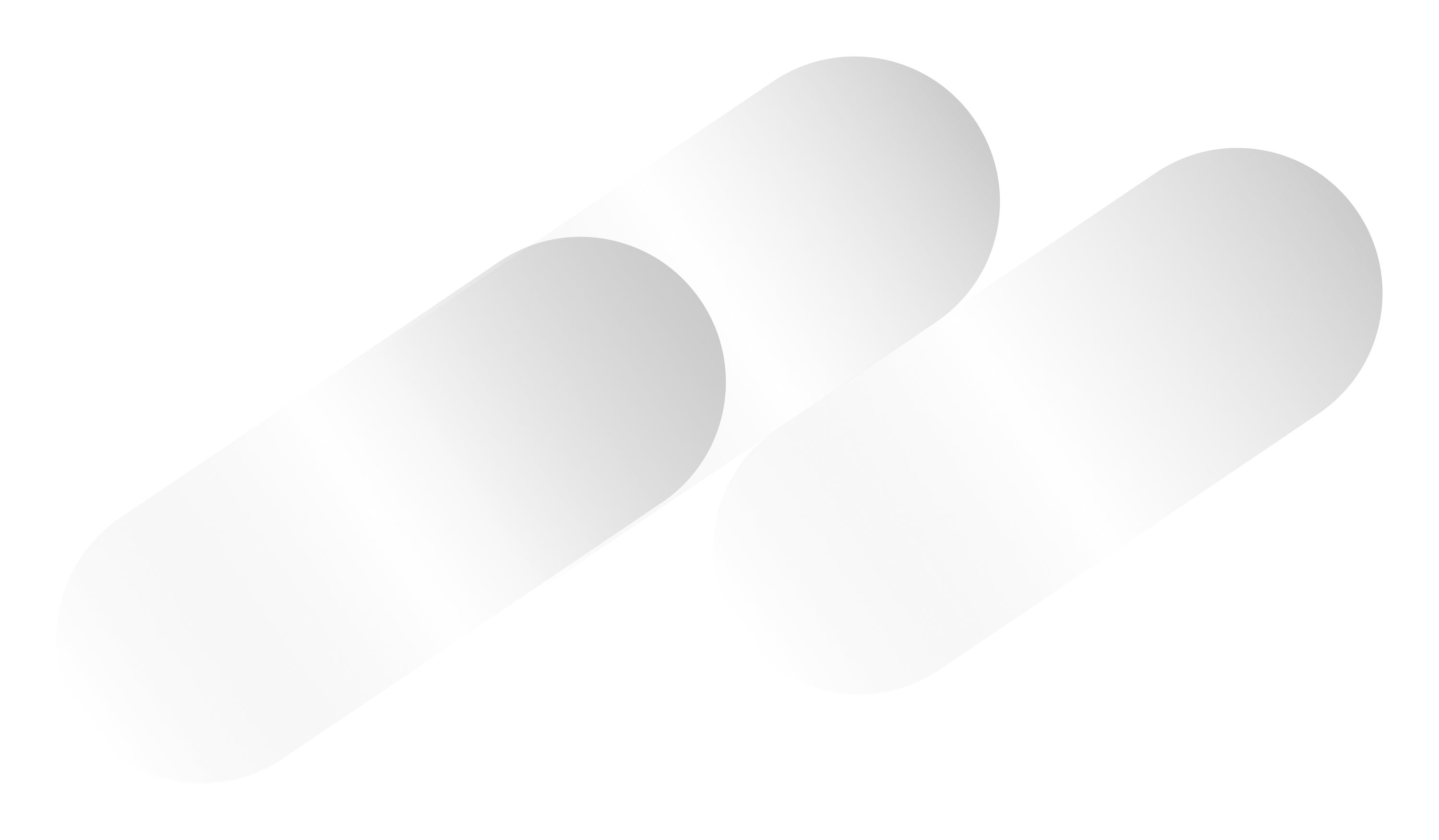The place of the experiment was a 1.2 hectare area, not entirely modern glasshouse located in Aba, where the producer has been growing cocktail tomatoes for 15 years.
The glasshouse consists of 18 bays (18*4.5 m), with 5 rows per bay of 85 metre length, equipped with a tray cultivation system. Row and stem spacing: 150cm*30cm. 2.2 stems per square metre.
Tomato type produced: Ardiles Reina, grown as grafted seedlings on Maxifort rootstock. During the experimental season the date of transplanting was 15 November 2023. The planned cultivation period was from 15 November 2023 to 10 December 2024.
We applied the liquid organic-mineral fertiliser already with the first watering after the transplanting of seedlings. We added 6 litres to the premixed high-concentrate fertiliser solution - which means 1000 litres of base solution. Watering with the fertiliser solution system is automatic, with a preset EC value. In the given case it was 3 per mille, which was mixed with the adding of fresh water, with a 5.5 pH value.
Starting of tomato seeds:
The first positive signs already showed during the transplanting, root growth phase. Roots were healthy, densely branching and strong. Results during the first week after transplanting can be seen on the image below.
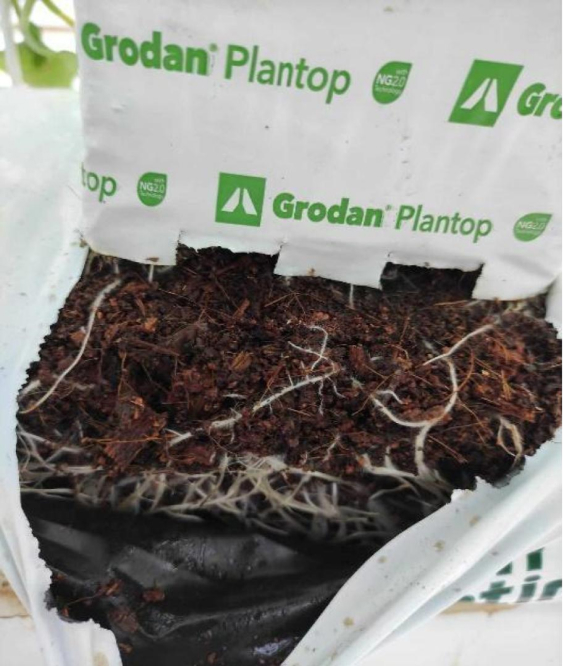
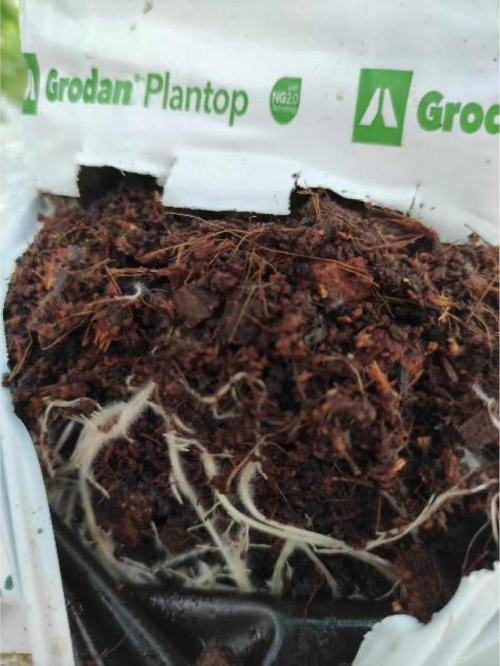
The following image shows the root growth of an untreated plant. Root growth in this case was slower, with less branches, the roots were not too strong, somewhat weak.
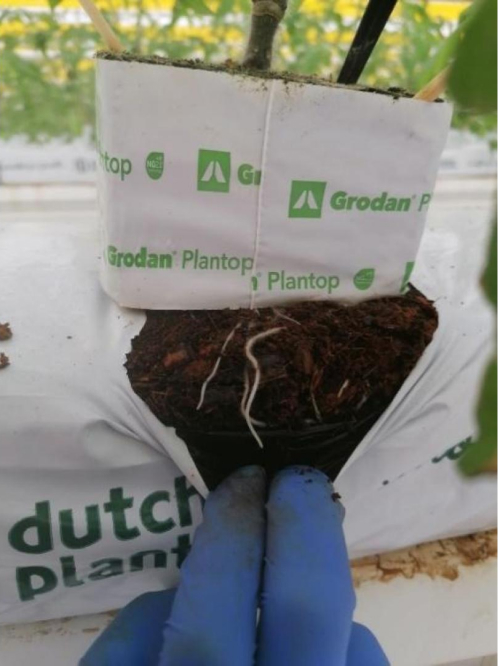
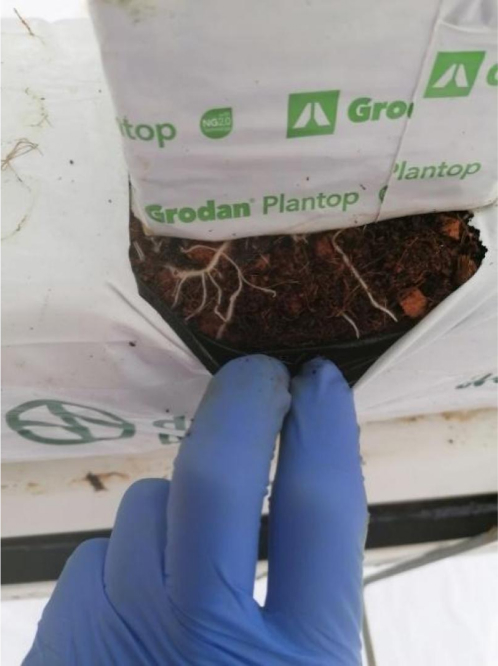
Vegetative stage:
Application of the liquid organic-mineral fertiliser was continued during the vegetative stage in the same quantity, adding 6 litres to a 1000 litre base solution. The intensity of natural light was low (36W/m2) during this period (December), and the average temperature was set to 15.5 °C. While tomatoes require more light and higher temperatures than this, plants endured the given conditions well. Resulting plants were beautiful and well balanced. Leaf and plant growth was balanced. The treated stock was uniform.
The following image shows the root growth of a treated and an untreated plant. Root growth of the untreated plant was slower, with less branches, with not too strong, somewhat weak roots.
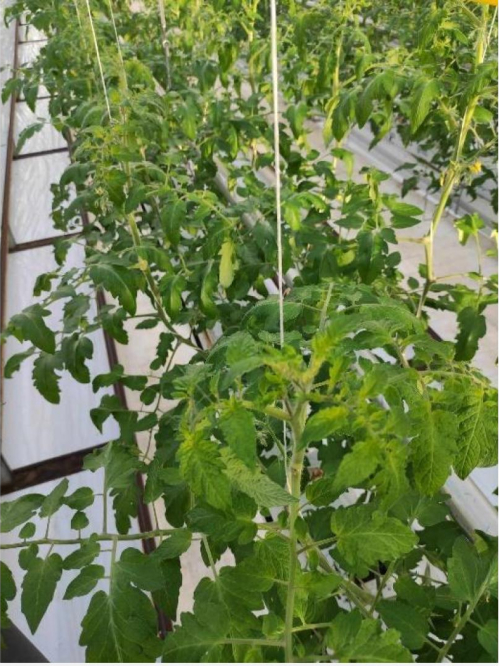
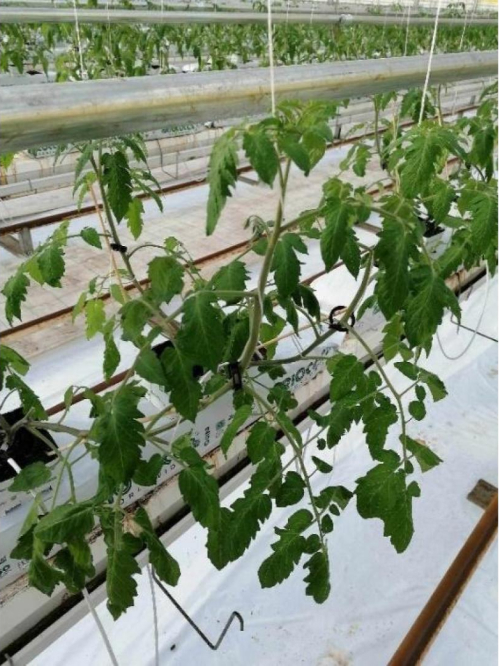
Blossoming, fruit setting
Blossoming was slower due to low light intensity, but flower and pollen quality was adequate. The blossoming and fruit setting of the treated stock was uniform.
Ripening
Fruits started to ripen 8 weeks after the blossoming of the first cluster. Vine size was adequate (40g), the ripening process was uniform.
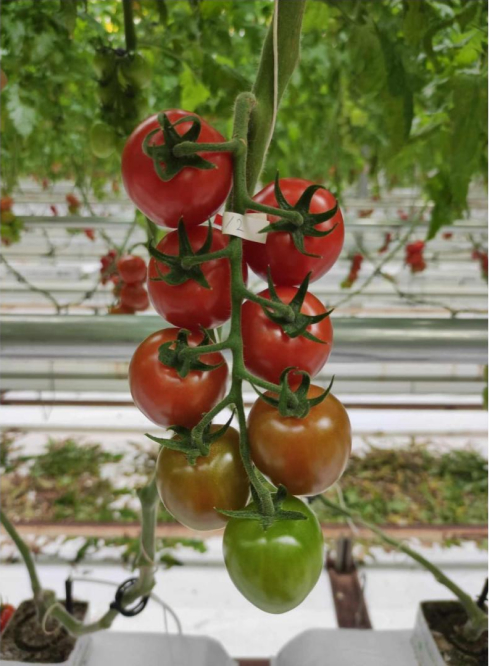
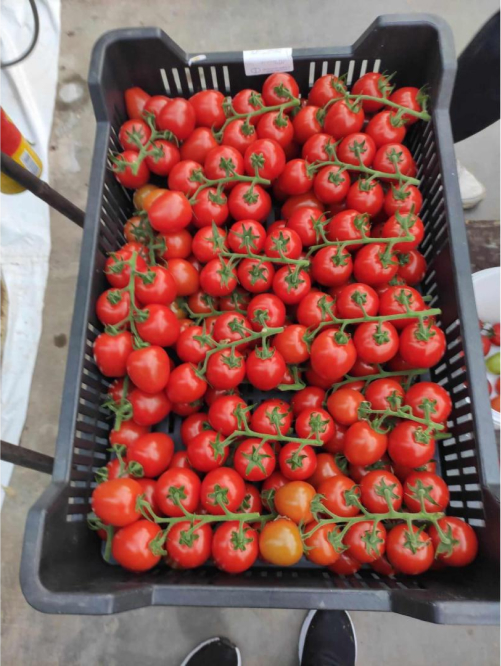
The following image shows the ripening of a cluster of an untreated plant. The position of vines within the cluster is incomplete. Ripening was slow, uneven within the cluster. This can be traced back to the slow pace of blossoming.
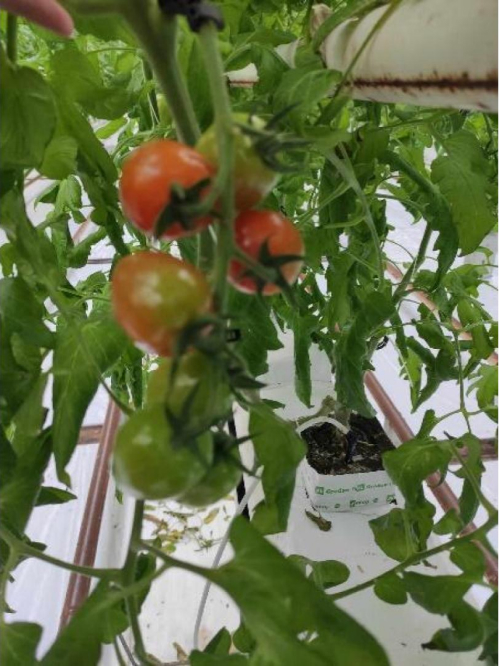
HUMIKAL UNIVERSAL Liquid product
- The product resulted in increased yield.
- The fertiliser had a positive effect on the growth and leaf development of treated plants.
- More flowers developed on treated tomato plants, fruit setting occurred earlier, and the fruit development stage was also completed earlier.
- Plants were in a better condition during the entire cultivation period, with a higher stress-resistance and better nutrient uptake.
